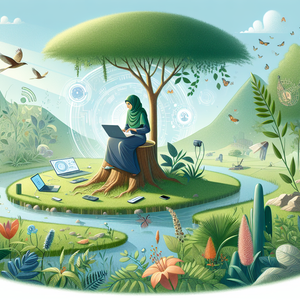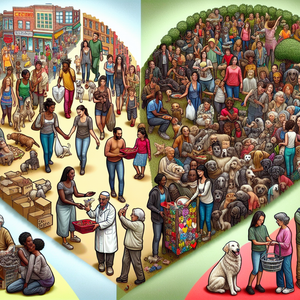The Future of Work: How Remote UX Design is Shaping Careers

The transition to remote work has fundamentally altered the way UX designers approach their roles. Gone are the days when designers worked solely within the confines of an office. Today, the ability to work from anywhere has opened up a global talent pool, allowing companies to hire the best and brightest regardless of their geographic location. This shift has led to increased competition among designers and has necessitated a reevaluation of what it means to be a successful UX professional in a remote setting.
Increased Job Opportunities and Competition
The remote work revolution has expanded job opportunities for UX designers significantly. According to a survey by UX Design Institute, 74% of companies are now open to hiring remote UX designers, leading to a surge in job listings and a wider range of projects available to freelancers. However, this influx of opportunities comes with heightened competition. Designers must now not only showcase their design skills but also differentiate themselves in a crowded market.
Evolving Expectations of Employers
As remote work becomes the norm, employers are adjusting their expectations for UX designers. Companies are now prioritizing candidates who possess not only technical skills but also strong communication and collaboration abilities. The ability to work effectively in virtual teams has become essential, as designers often collaborate with developers, product managers, and stakeholders across various time zones.
The Role of Technology in Remote UX Design
The explosion of digital tools catering to remote work has transformed the way UX designers conduct research, collaborate, and prototype. Platforms like Figma, Miro, and Zoom have become staples for remote teams, enabling seamless collaboration regardless of location. These tools not only facilitate real-time design work but also provide opportunities for user testing and feedback, which are crucial in the UX design process.
The Importance of Continuous Learning and Adaptability
In a rapidly changing work environment, UX designers must prioritize continuous learning to stay relevant. The rise of remote work has prompted many professionals to seek out online courses, webinars, and design communities to enhance their skills. This commitment to lifelong learning is crucial for adapting to new tools, trends, and methodologies that emerge in the UX landscape.
The future of work is undeniably intertwined with the rise of remote UX design. As the landscape continues to evolve, designers must navigate new challenges while embracing opportunities for growth and innovation. By adapting to changing employer expectations, leveraging technology, and committing to continuous learning, UX designers can position themselves for success in this dynamic environment.
Remote UX Researcher
UserZoom, Lookback, various tech startups
Job Responsibilities
Conduct user research through surveys, interviews, and usability testing to gather valuable insights.
Analyze qualitative and quantitative data to inform design decisions and improve user experience.
Collaborate with cross-functional teams to communicate findings and recommendations effectively.
Unique Skills
Proficiency in research tools (e.g., Optimal Workshop, UserTesting)
Strong analytical skills
UX/UI Designer for Mobile Applications
Airbnb, Spotify, other mobile-centric businesses
Job Responsibilities
Create visually appealing and user-friendly interfaces for mobile applications on iOS and Android platforms.
Develop wireframes, prototypes, and high-fidelity designs with a focus on mobile usability and accessibility.
Work closely with developers to ensure design fidelity during implementation.
Unique Skills
Knowledge of mobile design guidelines (Apple Human Interface Guidelines, Android Material Design)
Experience with tools like Sketch or Adobe XD
Remote Product Designer
Shopify, Atlassian, various SaaS providers
Job Responsibilities
Lead the end-to-end design process for digital products, from concept to delivery, ensuring alignment with user needs and business goals.
Facilitate design sprints and workshops to engage stakeholders and gather feedback throughout the design lifecycle.
Maintain design systems and documentation to ensure consistency across the product suite.
Unique Skills
Experience with design system tools (e.g., Figma, InVision)
Strong understanding of Agile methodologies
Interaction Designer (Remote)
Google, Microsoft, specialized design agencies
Job Responsibilities
Focus on designing interactive elements of digital products, enhancing user engagement and satisfaction.
Create user flows, wireframes, and interactive prototypes to convey design intent and functionality.
Collaborate closely with UX researchers and UI designers to ensure a seamless user experience.
Unique Skills
Proficiency in interaction design tools (e.g., Axure, Principle)
Solid understanding of user psychology
Remote UX Content Strategist
Digital marketing agencies, e-commerce platforms, content-driven businesses
Job Responsibilities
Develop and implement content strategies that enhance user experience and align with overall design goals.
Collaborate with UX designers to create clear, concise, and engaging content that meets user needs.
Conduct content audits and user testing to evaluate the effectiveness of web and mobile content.
Unique Skills
Strong writing and editing skills
Experience in SEO and analytics tools (e.g., Google Analytics, SEMrush)


